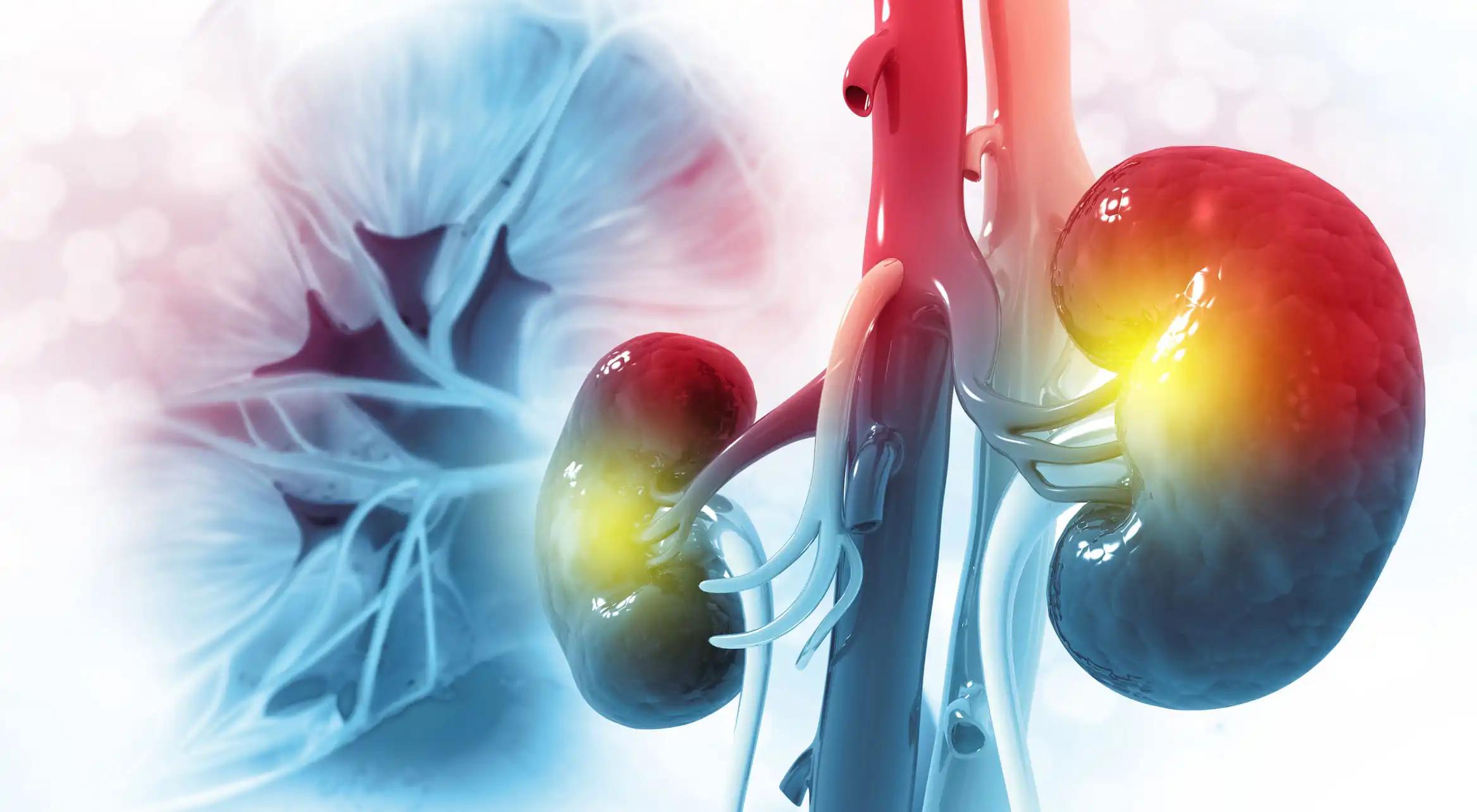KEY TAKEAWAYS
- The LEAP phase 2 trial aimed to assess the efficacy of pembro + lenvatinib in previously treated pts with RCC.
- The primary endpoint is to assess the icPFS.
- The study will provide insight into the immune markers in tissues and fluids and treatment response imaging for RCC BM.
Brain metastasis (BM) in renal cell carcinoma (RCC) has historically been observed in 2% to 15% of cases, with recent series after immunotherapy (IO) reporting incidences as high as 29%. Despite advancements in targeted therapies and IO agents, managing patients (pts) with RCC having BM remains highly challenging.
The snRNAseq studies revealed a distinct immunosuppressive environment in brain metastases, characterized by neuronal regulatory mechanisms that can be targeted through FGFR2 inhibition. Additionally, neuronal cells promote tumor cell proliferation via FGFR4 signaling, which can be addressed with a multi-target tyrosine kinase inhibitor targeting VEGFR, FGFR1-4, PDGFR, and other receptors.
Moreover, findings from Keynote-146 have demonstrated the efficacy of pembrolizumab (pembro) + lenvatinib in treating extracranial metastases in pts with disease progression after immunotherapy alone. Building on these insights, the current hypothesis proposes that pembro + lenvatinib can effectively modulate the immunosuppressive microenvironment of BM.
This study seeks to address a critical gap in RCC treatment by targeting the unique challenges posed by brain metastases. It leverages insights from molecular studies and recent clinical trials for prospective enhancement in therapeutic outcomes in this challenging patient population.
Elshad Hasanov and the team aimed to determine the safety and efficacy of combining pembro + lenvatinib therapy in pts with RCC with BM who have previously received immune checkpoint blockade, based on the hypothesis derived from previous snRNAseq studies and clinical trial results.
Researchers designed this phase II multicenter study to assess the efficacy and safety of pembro combined + lenvatinib in pts diagnosed with RCC and untreated BM, after receiving a prior treatment with immune checkpoint blockade.
The study aims to enroll 40 patients and includes futility monitoring by employing a Bayesian approach. The null hypothesis sets the median intracranial progression-free survival (icPFS) at 4.8 months, with a targeted improvement to achieve a median PFS of 8.7 months.
Pembro + lenvatinib (200 mg IV Q3W)/(20 mg PO QD) will be administered in 21-day cycles, with treatment continuing for up to 24 months (or 35 cycles) unless there is disease progression, unacceptable toxicity, death, withdrawal of consent, or discontinuation from the study for other reasons.
The primary endpoint of the study is to evaluate icPFS, which will be assessed using response assessment in neuro-oncology-Brain Metastases (RANO-BM) criteria. The key secondary endpoints include the intracranial objective response rate (icORR) of non-irradiated measurable BM (defined as tumor diameter 0.5-3.0 cm on MRI), and the distant brain failure rate, which measures the recurrence of new BM outside the radiation field, as evaluated by RANO-BM.
Additionally, overall survival (OS) will be assessed as a secondary endpoint. Safety endpoints include extracranial ORR and extracranial progression-free survival (PFS), which will be evaluated by employing the RECIST 1.1 and iRECIST criteria.
Exploratory analyses will encompass the assessment of immune-related correlates in tissue, blood-based markers, and cerebrospinal fluid. The study will also examine imaging characteristics related to treatment response, evaluate changes in neurological and cognitive function, assess reductions in seizures, and monitor the use of steroid and opiate pain medications.
Source: https://kcrs.kidneycan.org/wp-content/uploads/2024/06/KCRS24-Abstract-Book-6.27.24.pdf
The clinical trial identifier is not applicable to the study.
Hasanov E, Hammers H, George D, et al. (2024). “A multi-center, open-label phase II study of lenvatinib plus pembrolizumab (LEAP) in renal cell carcinoma patients with brain metastasis previously treated with immune checkpoint blockade.” Presented at KCRS 2024 (Abstract 28).



